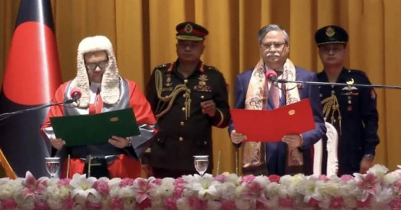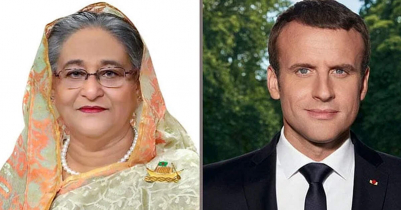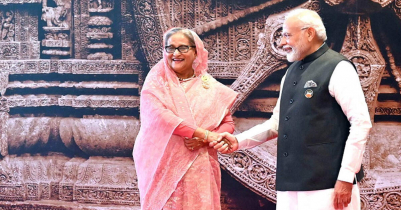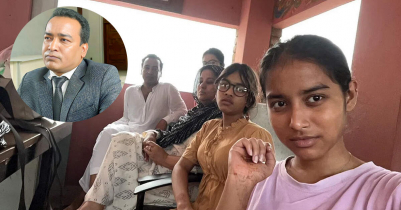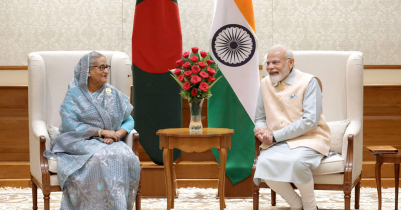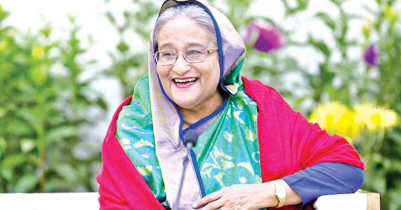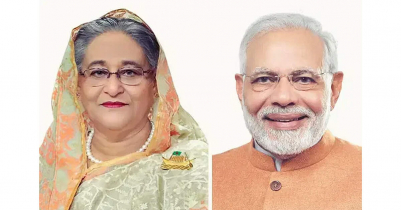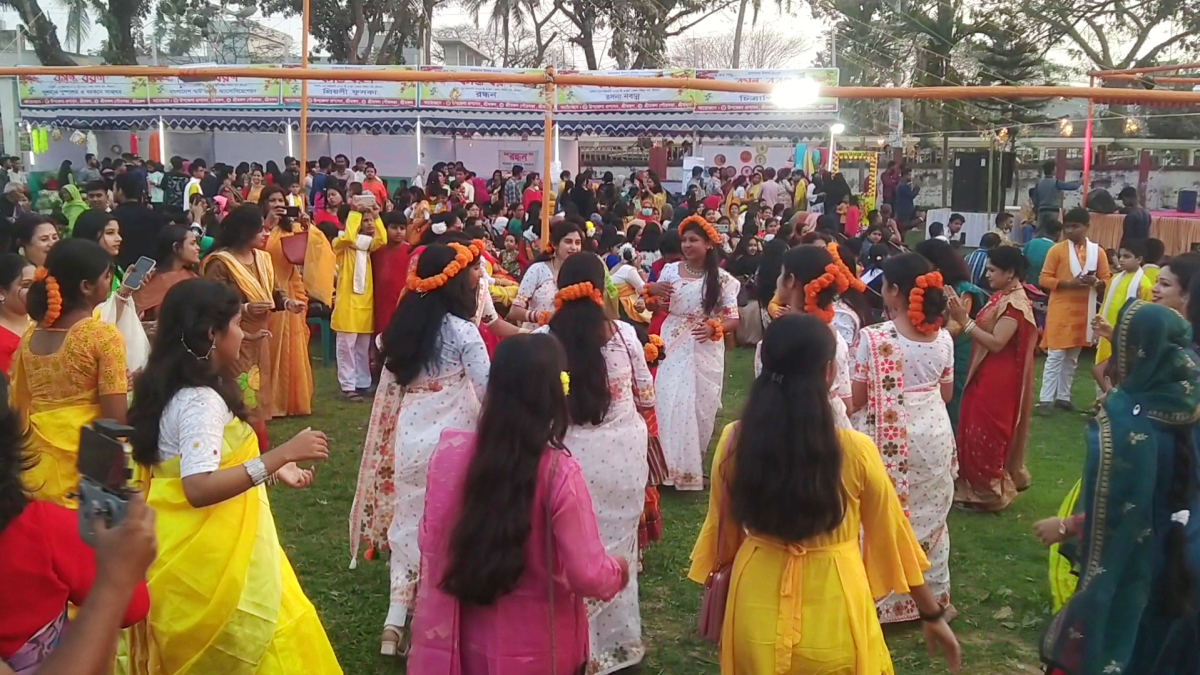Eye News Desk
Today is Pahela Baishakh, the first day of Bengal 1430
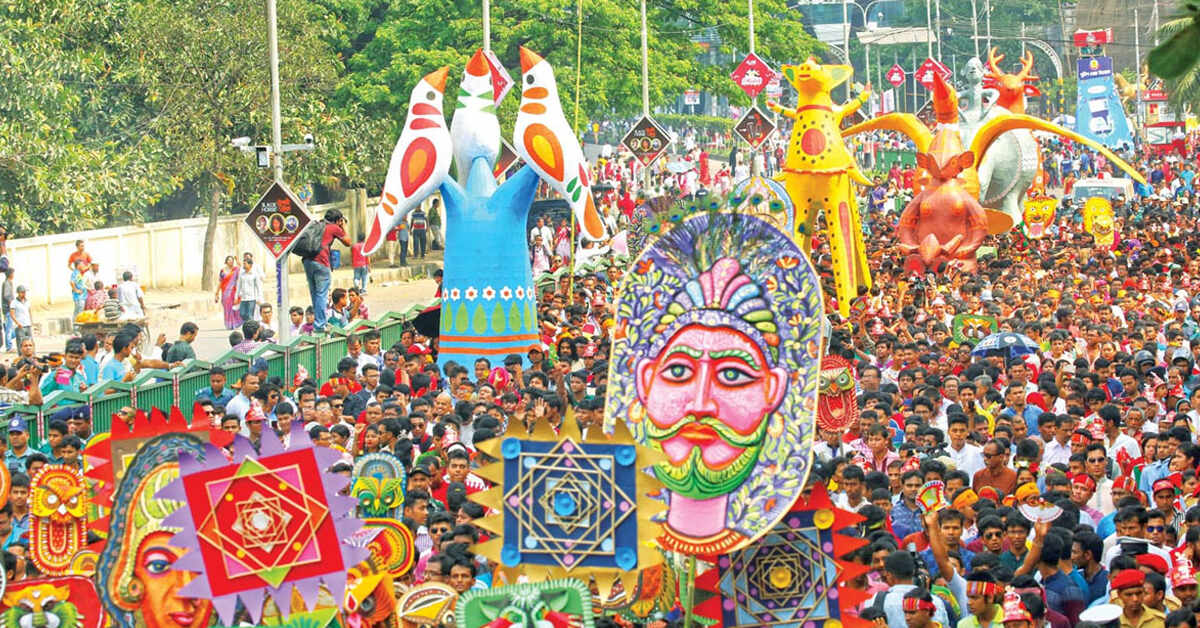
Today is Pahela Baisakh. Welcome Bengali New Year 1430. A new year has been added to the Bengali calendar. Chaitra Sankranti, the traditional festival of Bengal, was yesterday (Thursday), also the last day of the Bengali 1429 year.
Paila Baisakh encourages to build a liberal life-system by avoiding all the narrow-mindedness and hypocrisy. It removes all the maladies and dilapidations in the Bengali mind and inspires us to live with new zeal. Bengali, a proud nation in the heart of the world, this sense of patriotism and Bengaliness gets a new life, is energized in the first year of Baisakh.
Pahela Boishakh is a universal folk festival of Bengali. On this day, the new year is welcomed in a joyful atmosphere. New Year is a symbol of prosperity and new life. New Year is celebrated to forget the sorrow of past mistakes and failures and wish for happiness, peace and prosperity. The country celebrates colorful festivals on Pahela Baisakh. The Prothom-alo of dawn will paint new dreams, hopes and possibilities.
On the occasion of Bengali New Year, President Md. Abdul Hamid and Prime Minister Sheikh Hasina have expressed their sincere greetings and congratulations to the countrymen and Bengalis in separate messages. Today is a public holiday on the occasion of New Year.
When Pahela Baisakh comes, the traditional scenes of entertaining each other with sweets, paying the merchant, opening the halkhata take place. Baisakh means crowds of people in villages and towns. One of the accessories of Baisakhi fair is puppet dance, horse-elephant circus, binoculars. Somewhere we see stick games, palagan, kirtan sessions, boats or wrestling in the field.
There will be various New Year celebrations across the country including the capital. To celebrate 'Bangla New Year 1430' grandly, the government has taken a comprehensive program at the national level. Public holidays. Fine Arts Faculty of Dhaka University organized 'Mangal Shobhayatra' and cultural programs. Chhaynat has organized a cultural program at Ramna Botmule this morning.
The Department of Theater and Performance Studies of Dhaka University will celebrate the day through various programs throughout the day. Other cultural organizations including Rishi artist group will celebrate Bengali New Year with due dignity. The Bengali New Year ceremony will necessarily begin with the performance of the National Anthem and Eso Hey Boishakh song. On this day, the Ministry of Culture and Bangla Academy published articles in various national newspapers highlighting the significance of Bengali New Year and the history of Mars procession and its inclusion as a world cultural heritage by UNESCO. Bangladesh Shilpakala Academy organized a day-long programme. Traditional Bengali food and Iftar are organized in all prisons, hospitals and orphanages (orphanages) on Bengali New Year.
Once New Year was celebrated as Artava Utsav or seasonal festival. It was then closely related to agriculture, as agriculture was seasonal. Later, Bengali year calculation was started during Mughal Emperor Akbar's time to facilitate agriculture and tax collection. This new Bengali year is introduced based on Hijri lunar year and Bengali solar year. In the past, the main festival of Bengali New Year was Halkhata.
Bengali San, which came into effect in 1556, was initially known as Fosli San, later it was known as Bangabd. Although the history of the Bengal era is connected with the agricultural rural society, it is also connected with the political history. During Pakistan's rule, the anniversary ceremony was closely associated with Bengali nationalism. And at the end of the sixties, it got a special dimension through the organization of Chayanot in Ramana Botmule. At that time, Varsovaran started in a limited form at the civic level in Dhaka. After the great independence, gradually this festival began to influence the civic life. The non-communal and democratic spirit of Bengalis began to manifest itself in the New Year celebrations of Poyala Baisakh.
Over time, Varshavaran ceremony is now not just a festival of joy, but it has become a strong bearer of Bengali culture. Not only that, along with the festival, protests against tyranny and tyranny have also come in the organization of Pahela Boishakh. In 1989, the first Mangal Shobhayatra was organized by the Fine Arts Institute of Dhaka University. On November 30, 2016, UNESCO gave the procession the status of World Cultural Heritage.
Read More
- Bongo Bazar fire in international media
- Maj Gen Abul Hasnat new Bangladesh ambassador to Libya
- Leave to appeal dismissed : case against Dr Yunus to continue
- High Court grants bail to Mamunul Haque
- Advance bus ticket sales for Eid-ul-Azha begin on Jun 13
- Sheikh Hasina`s home-coming day today
- PM arrives in London to attend King Charles III`s coronation
- After 5 days the price of gold increased again
- Dhaka’s air ninth most polluted in the world
- Dr. Zafrullah Chowdhury is no more




